Clothing
For many people who use products to manage a bladder or bowel problem, clothing choices centre around disguising that fact.123 However, clothing choices can also contribute to how well the products work and how easy they are to change or manage.
Clothing to support and secure pads
Bladder and bowel management products that fit well and are held securely in place not only feel more comfortable and cause less rubbing, but are also more likely to work efficiently. Clothing products are available – both mainstream products and products specifically intended for use with continence products – that can help hold absorbent products and urine collection bags in place.
Elasticated, close fitting pants can be used to hold absorbent pads securely in place. They can also help reduce any noise that may come from the pad on movement. Specially designed pants for use with absorbent products are available, but high elasticity, lightweight garments associated with fitness and sports activities are also useful (Spandex, Lycra or Elastane).
18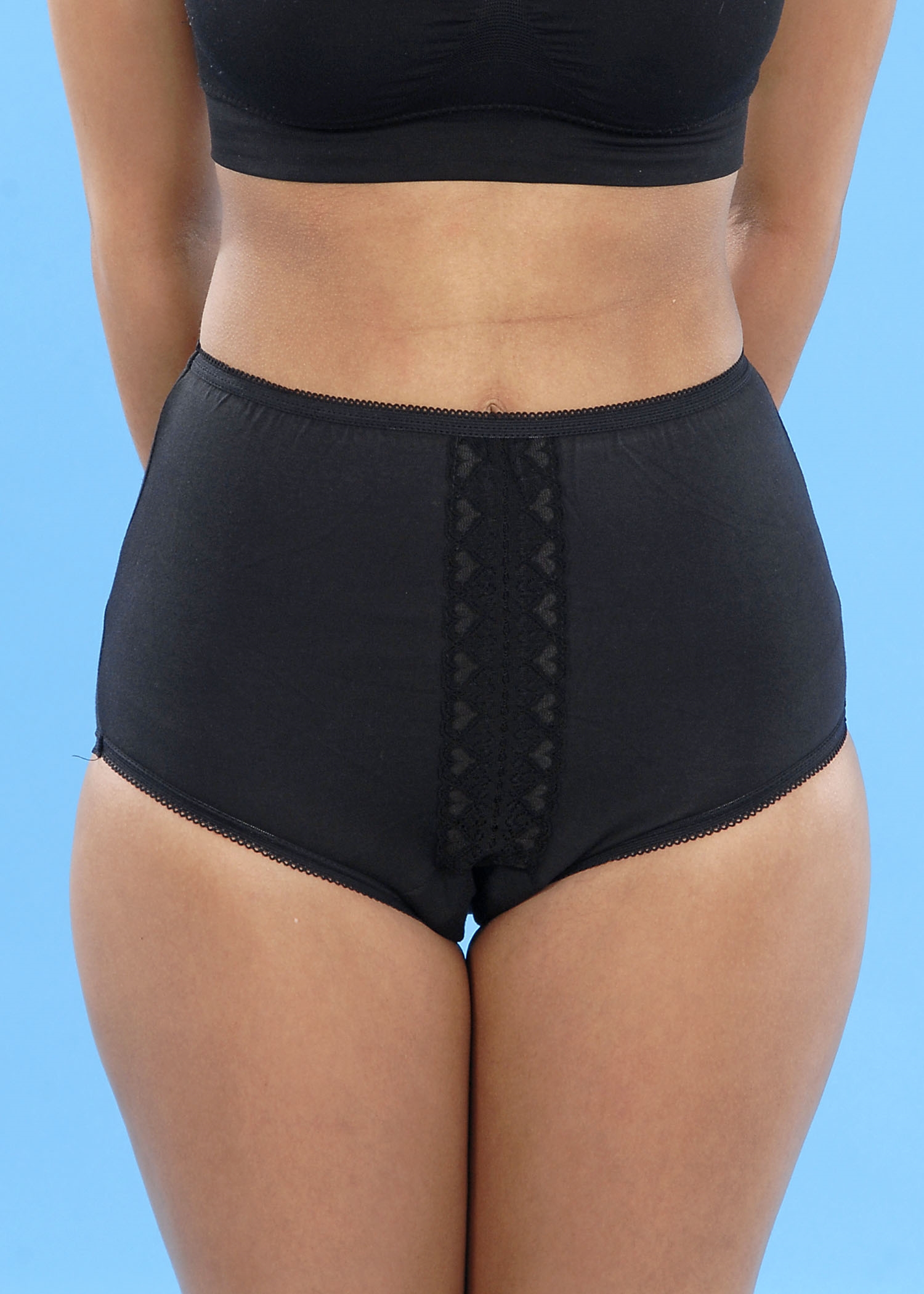
Support pants available in different colours19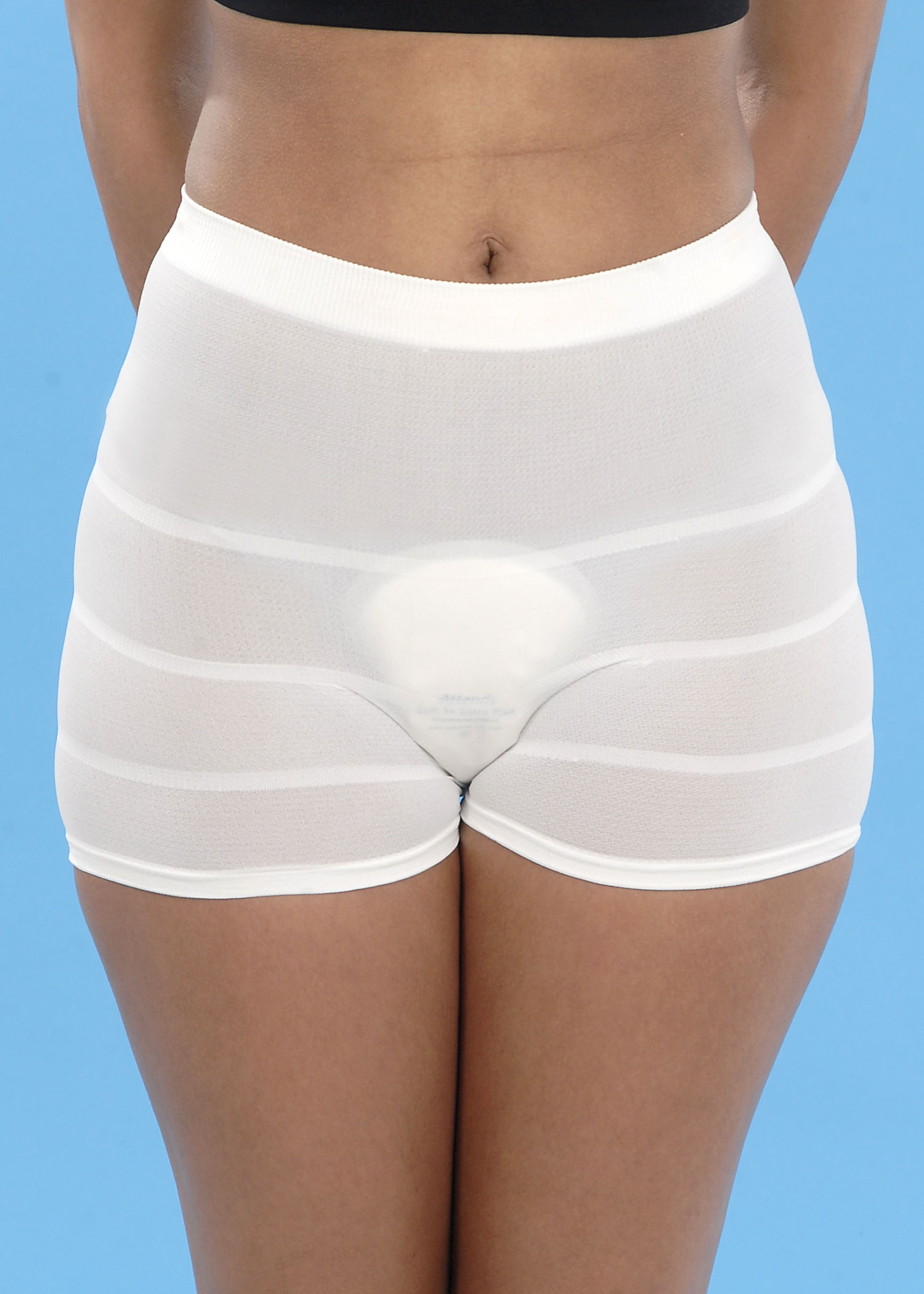
Mesh stretch fixation pantsClose-fitting vest or singlet-like bodysuits or “onesies” are available that incorporate a crotch section that is fastened with poppers. These garments can be useful in supporting absorbent products even when wet and heavy. Also, because the crotch section can be opened they allow for easier changing and quick access for using the toilet.
1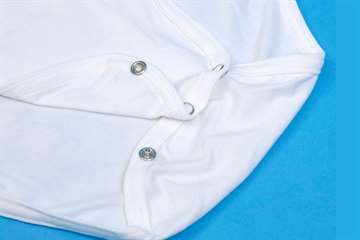
Detail of poppers in gusset on body suitWhere can I get support pants?
These are widely available from supermarkets, pharmacies or direct from pad suppliers. How you get these products and where they are available varies according to which part of the world you live in. Contact the supplier using the links below to find out how to get them where you are.
Clothing for easy changing/toileting
Most bladder and bowel management products need to be changed or emptied at regular intervals, and whether you are doing this yourself or assisting someone else, clothing can make the task easier or more difficult.
Some absorbent pads that have a pull-on element – such as disposable pull-up pants or insert pads with elasticated pants – will require the removal of outer lower clothing when the pad is changed. Other products such as adult diapers will at the very least require lowering of pants/trousers.
4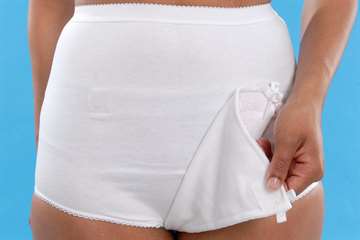
Drop front pantsWhen wearing a body worn urine collection bag some people find it more convenient to wear it higher on the leg and to lower their trousers to empty the bag. Others find it easier to wear the bag low on the leg and to raise the bottom of their trouser leg to empty.
So it can help to think about clothing choices. Certain types of clothes can make life a lot easier when using continence products and trying to maintain independence. For example, wearing a skirt or dress allows easier access for pad changing.
Clothes can also be modified to make life easier. For example, a longer zip in pants/trousers may make it easier to change pads.
Where can I get adapted clothing?
How you get these products and where they are available varies according to which part of the world you live in. Contact the supplier using the links below to find out how to get them where you are.
Waterproof pants
17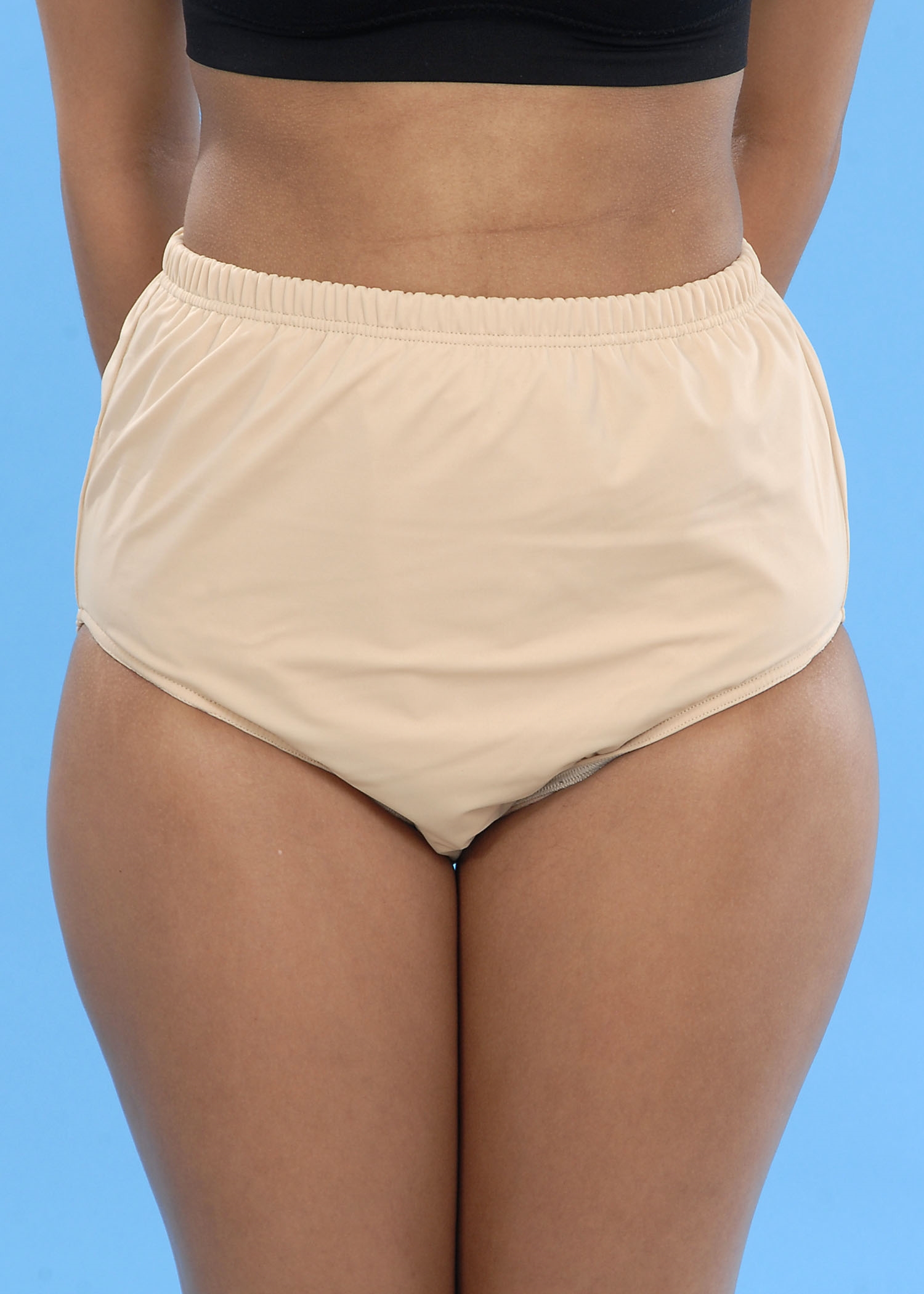
Waterproof pantsWaterproof pants are most commonly made from polyvinylchloride (PVC). Although these are the cheapest type, the material often loses its softness after repeated wear, exposure to oils from the skin or skin care products and washing, and therefore easily tears or splits.4
Most designs are also available in other materials:
- Polyurethane is a material similar to PVC, but is much more resistant to wear, oil exposure and washing.
- Waterproofed fabrics, such polyurethane laminate or nylon with a waterproof plastic coating.
Although more expensive, these products may also last longer and provide more comfort. Waterproof pants are available from a variety of manufacturers in several designs. The most basic are pull-on waterproof pants with elasticated legs and waist. “Drop-front” and side-opening waterproof pants are also available, which are intended to provide greater flexibility in the ways and positions in which pads and pants can be changed.
Decades ago, absorbent pads for bladder leakage very often did not have an integrated waterproof backing and had to be worn inside waterproof pants. Since more disposable and washable absorbent pads have been developed with increased absorbency, an integrated waterproof backing, and various methods and products for holding them in place, waterproof pants have become less widely used. 34 However, many people still use waterproof pants, to provide:
- Added protection against leaks from pads.3
- Extra protection against odour where there is bowel leakage.3
- Protection when unbacked pads are used – for example, washable towelling pads.
Although they may provide extra security, waterproof pants also have disadvantages. Being waterproof, they prevent circulation of air and contain perspiration so that they can be hot and uncomfortable to wear, and may increase the likelihood of moisture-related skin problems. Depending on the material from which they are made, they can also be quite noisy with movement.4
Where can I get waterproof pants?
How you get these products and where they are available varies according to which part of the world you live in. Contact the supplier using the links below to find out how to get them where you are.
Swimwear
Some companies make swim wear for adults and children to contain bowel leakage when swimming. They often cater for people with disabilities by producing swimsuits that are easy to put on yet look like every day swimwear.
10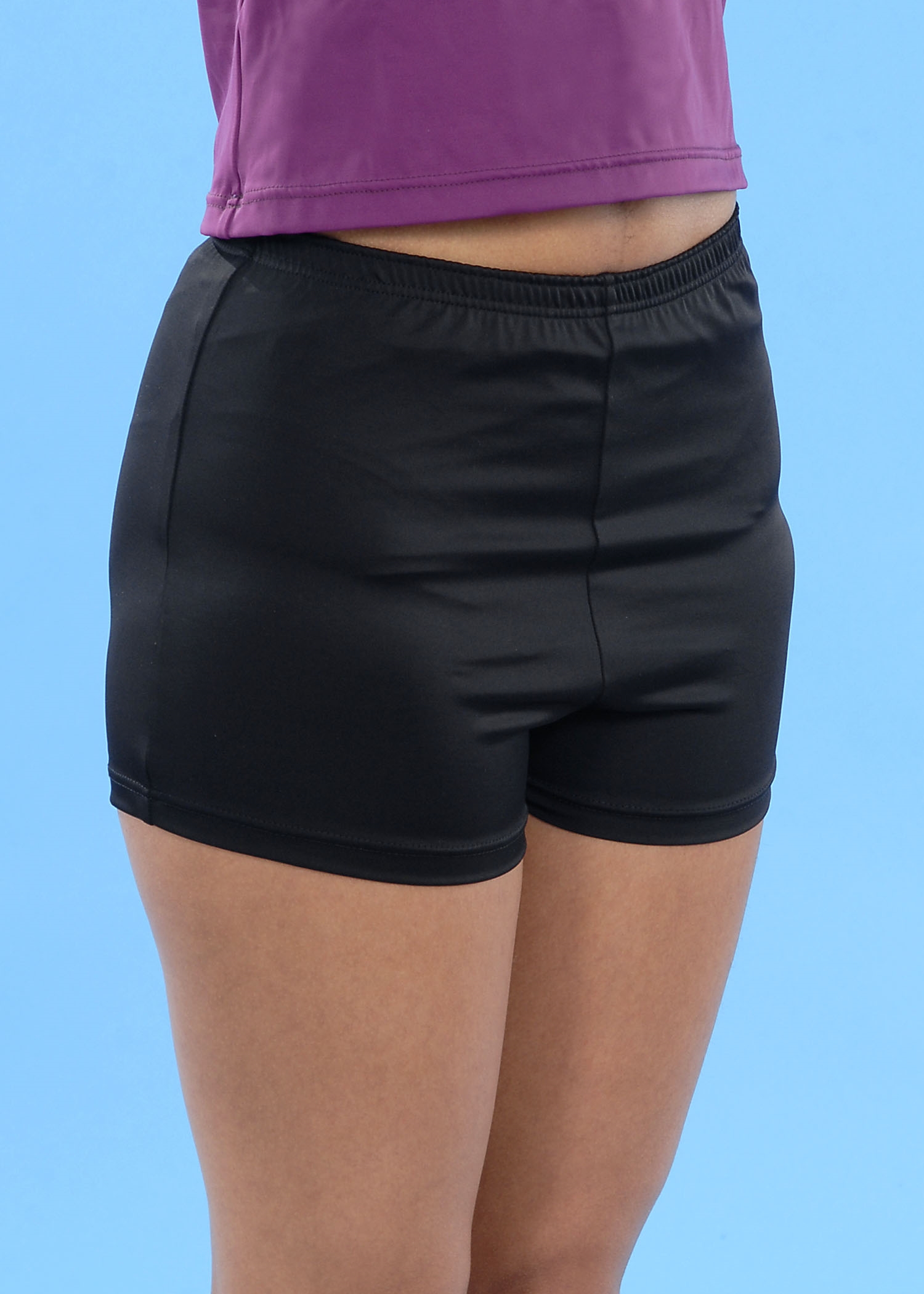
Two piece swimwear12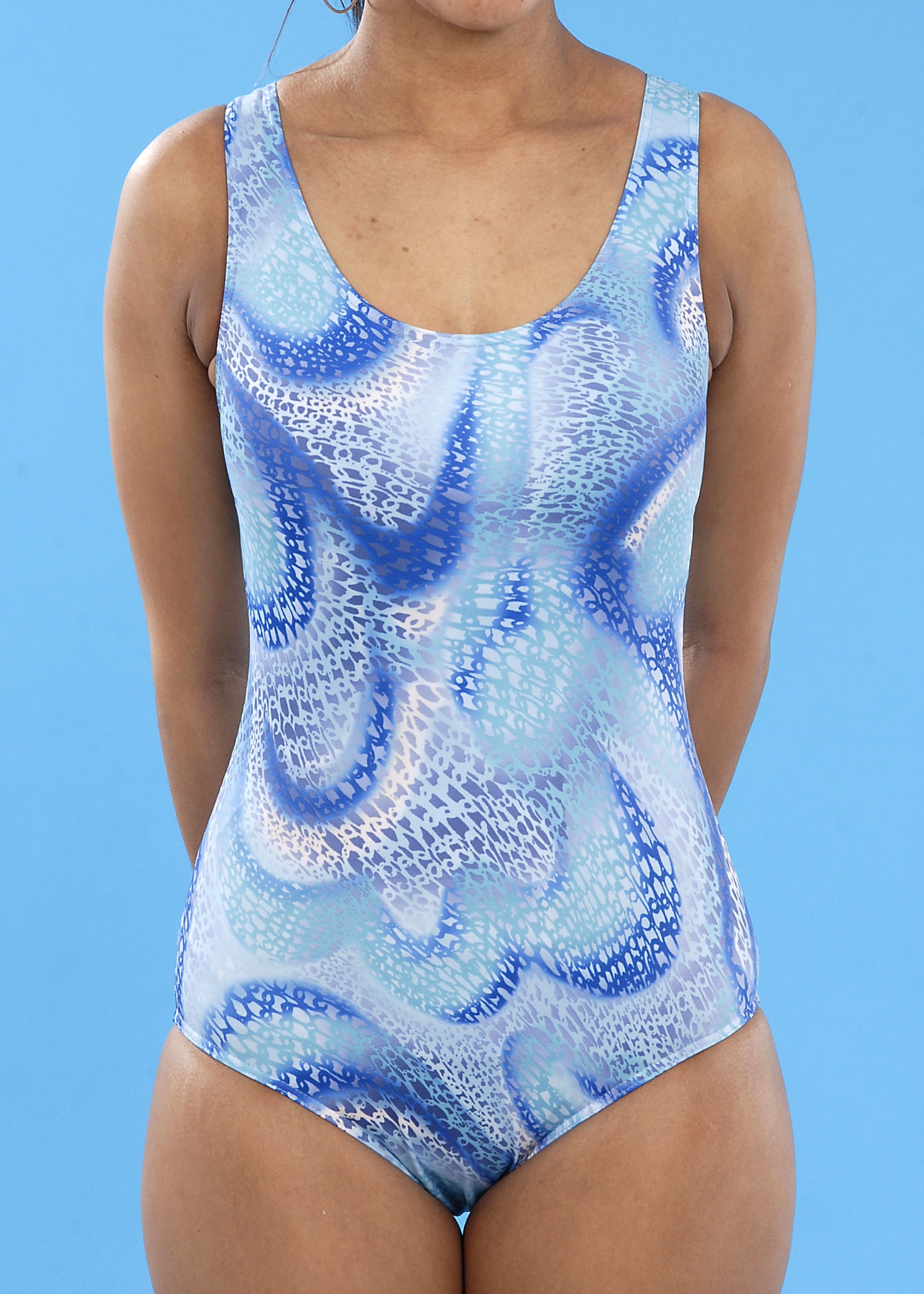
One piece swimsuitWhere can I get incontinence swimwear?
How you get these products and where they are available varies according to which part of the world you live in. Contact the supplier using the links below to find out how to get them where you are.
Odour control
Many people with bladder and/or bowel leakage report that they are very concerned about odour. Fears about odour can affect people’s relationships and activities.2 In one study among women with light urinary incontinence an absorbent pad’s ability to contain odour was considered the second most important factor in choosing pads, after ability to contain urine.1
Odour control and bladder leakage
The odour that can be associated with bladder leakage is mainly due to the production of ammonia from urea.2
The potential for odour can be minimised by:
- Regular and timely changing of products used in the management of bladder leakage.
- Attention to personal hygiene, including regular cleansing.
- Regular laundering of both underwear and outer clothes – some leakage of products onto clothing may go unnoticed, and the potential for odour can build up over time.
- Fabrics that have been treated with antimicrobial agents used in washable bed or chair pads, clothing, soft furnishings and bed linen may be of benefit in reducing the potential for odour.
- Antimicrobial solutions can be used to wash products such as hand held urinals and commodes.2
Applying scents to absorbent pads has been shown to do little to prevent odour associated with urine, and may even draw attention to the fact that the products are being worn.
Odour control and bowel leakage
The odour associated with both faeces and with flatus can be affected by health and gastrointestinal function and diet.
The most effective means of reducing odour associated with bowel leakage is prompt changing of products used and cleaning of the area that has been in contact.
Underwear is available that is made of fabric containing activated charcoal and has been shown to absorb much of the odour associated with flatus (wind or gas).2
Some users of absorbent products for urinary or faecal incontinence or both report wearing waterproof pants to provide additional protection against odour.3
Probiotic Lactobacillus plantarum has been shown to be effective in reducing flatus in people with irritable bowel syndrome by 50%, and over-the-counter preparations containing α-galactosidase may reduce malodorous gases.2
Where can I get odour controlling underwear?
How you get these products and where they are available varies according to which part of the world you live in. Contact the supplier using the links below to find out how to get them where you are.
Skin care
People of any age with incontinence may experience skin damage. This can range from mild skin inflammation and irritation to more serious skin erosion and infection, and is often complicated by fungal infections.
Regular or long-term exposure to urine and/or stool can affect the skin’s normal function as a barrier and can lead to skin damage. This can be made worse by:
- prolonged wetness and warmth
- lack of exposure to air due to use of pads/diapers
- pressure, shear or friction resulting from people who are confined to bed being repositioned
- repeated vigorous skin cleansing. 456789
Skin damage can occur in people with bladder leakage, but is even more likely in people with bowel leakage, and more likely still in people with both.
Skin assessment
It is recommended that skin in areas that may be exposed to urine and/or stool should be inspected at least daily.
Skin should be inspected more frequently in people at increased risk of skin damage who have:
- faecal or double incontinence
- poor health status such as a critical illness or multiple health problems
- fever
- restricted mobility
- low levels of activity or who are dependent on others for care
- poor nutrition
- poor cognitive awareness
When assessing skin you should look out for:
- redness
- broken skin, raised spots, grazes, blisters or pustules
- signs of fungal or bacterial infection210
Absorbent products
The type of absorbent products used and how they are used can help in skin care:
- Absorbent pads that allow the skin to remain wet can increase the risk of skin damage.
- Absorbent pads that contain super-absorbent polymers are preferable to pads that do not.
- Pads used for faecal incontinence should be changed as soon as possible after any bowel leakage.210 Absorbent products used for bladder leakage should also be changed promptly when wet.
Cleansing
Skin should be cleansed daily, and after every episode of bowel leakage.
If possible use a “pH neutral” skin cleansing product – that is, one whose acidity is similar to the skin’s own acidity levels.
Cleansing with water and soap should be avoided if possible. If only water and soap are available, the amount of water should be kept to a minimum and the soap used should be “pH neutral”. The skin should be dried thoroughly.
Cleansing and drying should be gentle, with as little rubbing/scrubbing as possible. Vigorous cleansing and drying can lead to friction and can worsen skin damage or the risk of skin damage.210
Protecting
Daily application of a skin protectant is recommended to reduce the skin’s contact with urine and/or stool. It may need to be reapplied more frequently for people who have frequent or high-volume incontinence episodes.
Many such products are available, commonly petrolatum or zinc-oxide based. There is currently not enough evidence to show that one product is more effective than another.2510